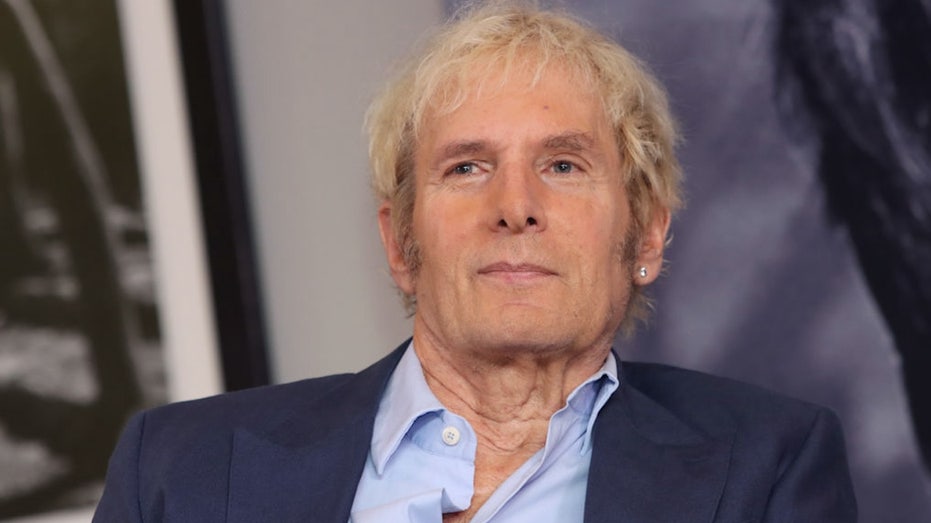Michael Bolton had strange symptoms before brain cancer diagnosis: Somethings wrong
A Grammy-winning singer and his family have revealed the surprising early symptoms of hisbrain cancer.Michael Bolton, who was diagnosed in December 2023 with glioblastoma the most aggressive and fastest-growing form of brain cancer first exhibited signs that something was amiss the month prior, according to his daughters.During a family night at the bowling alley, Bolton, 72, bowled out of turn several times, they toldPeople during a recent interview.MICHAEL BOLTON'S BRAIN CANCER TREATMENTS HAVE HARSH SIDE EFFECTS, BUT SUCCUMBING IS 'NOT AN OPTION'That same night, the singer had also fallen out of his chair, which was "very unusual," Taryn, 45, told the outlet."Hes super athletic, and he doesnt drink," she said. "So he fell, and we were like, What just happened?""That was when we were like, Somethingswrong with his brain."Looking back now, Boltons daughters recognize "so many things" they missed.NEW PROSTATE CANCER TEST PINPOINTS DISEASE BETTER THAN PSA OPTION, STUDY FINDSEarlier that fall, the Grammy winner had struggled to keep his balance and experienced nausea while performing at a charity event.His daughters had assumed the strange symptoms were due to lack of sleep orexcess stress, they said."Hed been working nonstop that whole time," Taryn recalled while speaking to People."Traveling, doing shows, doing all of these things. We were like, hes getting older, hes tired, hes stressed out. All of these things we sort of explained in a way, one by one."Following the strange symptoms while bowling, Bolton began experiencing headaches, his daughters shared.The following Monday, he received an MRI that detected abrain tumor, which was removed surgically and found to be glioblastoma.ALTERNATIVE CANCER TREATMENT COULD REPLACE CHEMO AND SURGERY, STUDY SUGGESTSWhile rare, glioblastoma is known for affecting people across all ages and for its fast, aggressive development, according to Michael Canney Ph.D., chief scientific officer of Carthera, a Colorado health tech company that developsmedical devices to treat severe brain disorders."Although glioblastomas cause isnt fully known, the disease begins when genetic changes in brain cells cause them to grow out of control," Canney, who was not involved in Boltons care, told Fox News Digital."These cancerous cells rapidly invade surrounding brain tissue, making the tumor especially aggressive and hard to treat."Canney confirmed that the symptoms Bolton experienced confusion, sudden falls andsevere headaches are consistent with glioblastoma warning signs.WOMAN SAYS DOG DETECTED HER BREAST CANCER BEFORE DOCTORS DID: 'HE'S KNOWN THIS WHOLE TIME'"Other potential red flags include nausea, memory loss, personality changes, speech difficulties andvision changes," he added."While the symptoms of glioblastoma are not unique to this disease, anytime you or a loved one experience an unexplained change in behavior, mental awareness or motor control, its important to see a medical professional."After surgery, Bolton completedradiation and chemotherapy, which have so far kept cancer at bay, the report noted.He receives ongoing MRIs every two months to ensure that he is still clear of tumors.Glioblastoma is among the deadliest cancers, with patients living for an average of just over a year after diagnosis. The five-year survival rate is less than 5%."It is truly among the most tragic diseases," Canney said.Part of what makes glioblastoma so severe is its resistance to treatment, according to the expert."Around your brain, theres a natural protective barrier called theblood-brain barrier," he told Fox News Digital.CLICK HERE TO SIGN UP FOR OUR HEALTH NEWSLETTER"While this barrier keeps the brain safe from toxins and other harmful substances, it also blocks the life-saving chemotherapy drugs used in treating most cancers."In some cases, including Boltons, glioblastoma treatment canbegin with surgery to remove the tumor, provided it has not grown too deeply into the brain, Canney said.Other treatment options include radiation and chemotherapy, which can "modestly extend survival," he noted."Although current treatment options are limited, a number ofclinical trials are underway that give us an immense sense of hope," Canney said, pointing out a new form of ultrasound-based technology that is showing promise.For more Health articles, visitwww.foxnews.com/health"If approved, this technology will enable doctors to safely and temporarily open the blood-brain barrier for the first time ever allowing a greater number of potentially more effective chemotherapy drugs into the brain."



